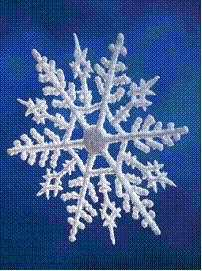Question from a reader:
I'm in quite a predicament. I have two [figure] skaters, one 10 years old and one 8 years old, that are now both at the Pre-Preliminary competition level. I'm not sure how to handle this because I'm not crazy about my girls competing against each other in a competition, but I also don't want to hold one back. What do you think?
I put this out to my advisory board and here's what two members had to say:
C.L.: Oh I love adding my two cents. This is what I would do. I would put one in restricted or test track pre-pre and the other in well balanced pre-pre. Test track being the easier one (this one for the older skater). Of course, if the parent can convince them that they are only really competing against themselves then it shouldn't matter how they place. Perhaps not even checking the judges’ sheets after would be a good policy...if they skate better than in practice or at the best they can skate haven't they really come in first anyway? :)
Pairs Mom: I'm not sure I'm "qualified" to answer this question but I will try and give some advice...
Most mid-size competitions will have two or more groups of Pre-Preliminary skaters that are grouped together by age and normally this is done by the referee. If the girls take from the same coach or if they do not, have one of the coaches email the referee and ask that they be placed in two different groups for the competition. We normally group skaters together by ages 6 - 9 and 10 - 12 but this can vary slightly due to entries. This avoids the girls having to compete against each other. This way they also get to cheer for each other! Good luck!
Here's my take (caution: long and preachy):
Ice Mom: Kids are more like snowflakes than widgets. Each person is unique. Each person learns and develops at his or her own rate. This is a good thing. Learning something isn’t about the destination: it’s about the journey. It’s about collecting experiences that build up our knowledge.
That sounds pretty flowery, so let me make it more concrete. According to my favorite cognitive scientist, Daniel Willingham at the University of Virginia, the brain doesn’t like to think. This is true. Our brains love to work on experience. Given the choice between thinking of a new solution and relying on experience, our brain will almost always choose experience.
What does this mean for figure skaters? Each skater must build up his or her own experiences. Remember me ranting about that stupid Axel? Well, the figure skater who lands the stupid Axel in one month might not have built up the body of experience that the figure skater who lands it in a year has built up. Or, possibly, the one-month Axel kid has built up many years of figure skating experience and can land the jump more easily because of that experience. Building up that experience allows a figure skater to know when the jump doesn’t feel right and how to save it. Building up that experience teaches a figure skater how to fall so it doesn’t hurt as much. Building up that experience makes it easier to learn the next jump.
Willingham says our brains aren’t like file cabinets with a limited amount of storage. Instead, our brains are like magnets. The more experience and knowledge you put on the brain, the more magnetized the brain becomes. The more the brain holds, the more information and experience it gathers. So that year-long stupid Axel process isn’t a waste of time. It’s an experience-gathering period of time. None of the falls, set backs, and two-foot landings are a waste: they’re building up that knowledge base.
So comparing one 10-year-old figure skater to another 10-year-old figure skater is a tough thing to do, because each one collects different experiences. It’s even tough to compare the 10-year-olds if they are twins in your own family. I know twins who look so similar that I’m grateful when they wear jackets with their names on them. One twin is a lefty, the other a righty. One usually places a bit higher at competitions than the other, but they’re pretty evenly matched. How does the mom cope? She tries very hard to enter them in bigger competitions where the twins might not compete against one another. She includes a note in the registration envelope to ask that the girls not be in the same group. She also tries to teach them good sportsmanship and to be happy with their individual performance.
Does it work? Well, pretty much. I won’t lie to you: one girl is usually pretty disappointed and tries to put on a happy face for her sister. That builds up the knowledge bank, too.
I know another family where the skaters are two years apart. The younger one just landed her double Axel. The older one is still working on it, but she’s genuinely happy for her sister. Why? I think she’s realized that there isn’t a limited supply of double Axels. Sure, not everyone gets one, but for skaters who put in the time, have built up experience, and benefit from good coaching, the double Axel is something figure skaters can earn. One sister’s double Axel achievement doesn’t prevent the other one from earning one, too.
Note: This all sounds great on paper, but you all know that I still hate that stupid Axel and all of the frustrations it brought. Yeah, yeah. Build the knowledge base and all that. I get it. I still hate that stupid jump, though.
Alright. I’m done preaching.
Update: From reader JustPat: You can influence how they handle winning and losing, especially to each other. Your reactions to winning and losing will influence their perspective of how important it is to be a "winner."
Everyone who has been involved in skating for some time will tell you that it's important for the skater understand that if they have skated their program to the best of their ability, that's what should count in the skater's mind. If they are rewarded by the judges, it's a bonus.
I'm sure that it's difficult to lose to a "little sister." Perhaps you could also emphasize the things that the older child does better/ is allowed to do that the younger one can't.
In the meantime, make a note on the registration forms when you enter them in competitions. (Or as mentioned earlier, have the coach contact the ref.) I used to organize our club's local competitions and with the referee's permission, we made every effort to accomodate those requests. In some cases we couldn't split the groups, so the parent chose to put the siblings in different events- one would do Freeskate, the other Moves, or Showcase for example.
Update: From reader Xan of Xanboni!: First of all, if you think you're kids aren't competing already, you're delusional, but frankly my experience coaching MOST sibs is that they support each other more than they compete with each other. [...]if they learn not just to handle, but to take joy in each other's successes, well, that's one of those life lessons that makes figure skating such a great thing for kids to do.
Update: From reader Mary Beth Niedermier: My advice is to tell your child to do their best. After competitions, one of the first questions I always ask them is if they thought they did their best. There are so many variables to competition, that I stress that they should be happy doing their best and be proud of the effort they put into it.
So, parents. How do you cope with two (or more) figure skaters in the same family? Please add your experiences in the comments.
Reference:
Willingham, Daniel. (2009) Why Don't Students Like School?: A Cognitive Scientist Answers Questions About How the Mind Works and What It Means for the Classroom. Jossey-Bass: San Francisco. http://www.danielwillingham.com/
Do you have a question for Ice Mom? Send it to me at icemom.diane@gmail.com.
RCZXZD2EKAPT
Wednesday, January 13, 2010
Subscribe to:
Post Comments (Atom)












5 comments:
I have know several sets of skating siblings. Oddly, in every case the younger child was the better skater. In a couple cases the younger siblings even went on national competitions.
I agree, I don't think it's a good idea to try to hold one back. I think it's better to let them progress naturally and they will probably seperate to different levels more quickly.
There are life lessons to be gained in the interim though. As Ice Mom says, the experience of each of your skaters will be different. Both your skaters will learn to be gracious competitors, but they may learn from different perspectives. You can influence how they handle winning and losing, especially to each other. Your reactions to winning and losing will influence their perspective of how important it is to be a "winner".
Everyone who has been involved in skating for some time will tell you that it's important for the skater understand that if they have skated their program to the best of their ability, that's what should count in the skater's mind. If they are rewarded by the judges, it's a bonus.
I'm sure that it's difficult to lose to a "little sister". Perhaps you could also emphasize the things that the older child does better/ is allowed to do that the younger one can't.
In the meantime, make a note on the registration forms when you enter them in competitions. (Or as mentioned earlier, have the coach contact the ref.) I used to organize our club's local competitions and with the referee's permission, we made every effort to accomodate those requests.
In some cases we couldn't split the groups, so the parent chose to put the siblings in different events- one would do Freeskate, the other Moves, or Showcase for example.
This is what we have done. My skater are 18 months apart. Yes, they have been against each other, as one is a boy and one is a girl. Its a fact of life in a small state.I cant bubble wrap them,one will place higher than other one.Its a comp for a reason.But they have learned its not about the medal,even though they both WANT to win.They cheer each other on, along with the skaters they grouped with.
As far as asking to change the girls, it just depends. We ran into that this year at regionals, the three pre juv girls all from this state were in the same group.I couldnt get it changed.It stinks to pay a ton of money and compete with the same girls!!.
First of all, if you think you're kids aren't competing already, you're delusional, but frankly my experience coaching MOST sibs is that they support each other more than they compete with each other. You'll definitely get some one-up-manship if they compete together, but I've seen more kids happy for the higher-placing sib than angry about it. I've written about our rink's dance champion-- she is one of triplets, all of them competitive figure skaters at the same level. When the banner with Angel's name went up at the rink, the first person to see it was her sister. I was there; that girl's face lit up like a Christmas tree and she turned and threw herself into Angel's arms. And let me tell you, those three are VERY competitive with each other.
I think it's not so much whether they compete with each other, as how they handle it. You can't keep them from competing against each other, at this or anything else. But if they learn not just to handle, but to take joy in each other's successes, well, that's one of those life lessons that makes figure skating such a great thing for kids to do.
I have two daughters (2 years difference) who were figure skaters. They both started in snow plow Sam classes together. The coach said my oldest had more potentional but put way less effort into skating. My younger daughter put her whole heart in it, practiced really hard and has become the more dominant skater.
The worst experience was a Basic Skills competition where they were put in the same flight together. We tried to keep praise equal, but one child was of course upset. And it was one long quiet ride home.
The older daughter has since moved past skating. She simply didn't want to put the time into practice. She does understand the hard work it takes for her sister. In a way I am disappointed that she didn't continue skating, but having only one child skating is such a relief. We have since found other things for her that we all support.
My advice is to tell your child to do their best. After competitions, one of the first questions I always ask them is if they thought they did their best. There are so many variables to competition, that I stress that they should be happy doing their best and be proud of the effort they put into it.
Hi, Mary Beth.
I like your comment. Even though Ice Girl is an only child, I think it's helpful to keep in mind that figure skaters should be proud of their work and not their medals and placements.
I always tell Ice Girl: Your best is good enough for me.
Ice Mom
Post a Comment